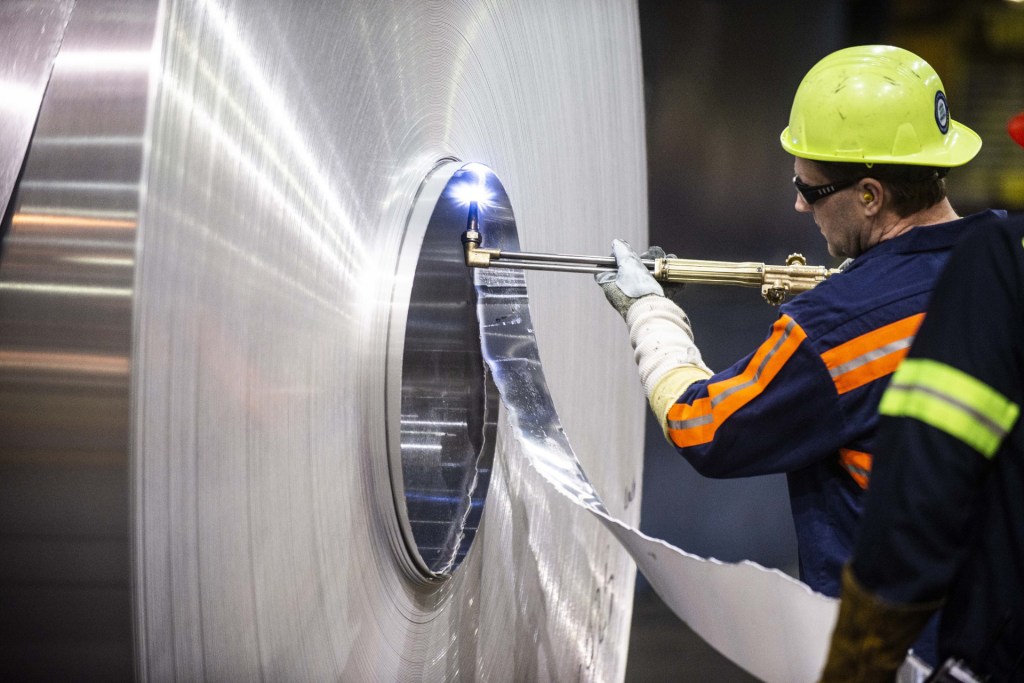Manufacturers facing difficult workforce environment
Published 2:19 pm Friday, October 4, 2024

- Courtesy of Weasie Gaines Photography A Logan Aluminum worker welds a coil.
By DON SERGENT, Bowling Green Daily News
It’s enough to make a human resources professional look for another line of work.
According to U.S. Bureau of Labor Statistics data, there were 8.2 million open jobs in the country in July and only 7.1 million unemployed workers.
The numbers don’t add up on the state level either. That July data shows that employers in Kentucky have 41,000 fewer workers compared to what would be needed for full employment.
What such numbers reveal is a disturbing workforce environment that may be even more evident here in southcentral Kentucky, where a number of new manufacturers are setting up shop and adding to the demand for workers.
In fact, a Bowling Green Area Chamber of Commerce survey of 86 manufacturers across the region projects that the number of manufacturing job openings in the region will skyrocket from about 650 today to more than 9,000 by 2034.
What does that mean for the local manufacturers that continue to be the engine driving the region’s economy?
A report from the chamber of commerce on the state of the region’s manufacturing workforce paints a bleak picture.
According to that report, “the mismatch between needed talent and their (manufacturers) ability to fill high-demand occupations is an ongoing threat to their growth and to our region’s competitiveness.”
The threat is evident to those on the front lines at two of this region’s leading manufacturers, who see firsthand the changing workforce environment reflected in the chamber of commerce survey.
“Used to be, employers got to pick from the best applicants,” said Teresa Hayes, human resource manager at Russellville’s Logan Aluminum plant. “Now we have to do our best employer branding.
“There’s competition for workers, with new companies opening up in the (Kentucky) Transpark. There are a lot of good companies that pay well. It’s definitely an employee market, similar to a buyer’s market in real estate.”
Other developments, including a growing need for technical skills, are also changing today’s workforce environment, and the chamber of commerce survey bears that out.
According to the report arising out of that survey, the new industrial era “demands a higher caliber of skills, spanning technical expertise, digital proficiency, and soft skills, further complicating the hiring landscape.
“Manufacturers are caught in a bind, with growing job openings they can’t fill due to a severe lack of qualified candidates.”
The survey results demonstrate that local manufacturers are increasingly concerned about finding employees with the necessary skills and work ethic.
A similar survey conducted in 2013 showed that 67% of local manufacturers were most concerned about finding skilled candidates for critical positions. That number was up to 80% in the recent survey.
Although General Motors Corvette Assembly Plant Director Ray Theriault describes that plant as “an aspirational place to work” that has historically attracted high-quality workers, he says the 1,400-employee plant is, like other manufacturers, faced with a more competitive workforce environment.
“The data from the chamber says there will be 9,000 manufacturing jobs added over the next 10 years,” Theriault said. “There will be more competition for workers.
“It’s absolutely something we’ll be on the lookout for. We will always try to make this the workplace of choice.”
Already, Theriault said, the Corvette plant is “branching out in as many ways as possible” in efforts to find qualified workers.
“We’ve been to career fairs at Fort Campbell and other areas,” he said.
Closer to home, Theriault said his plant is working more closely with local public schools and Western Kentucky University to prepare young people for careers in manufacturing.
“We reach all the way down to elementary schools, trying to inspire students to consider STEM (Science, Technology, Engineering and Math) careers,” he said. “We partner with the chamber and other leading employers to see what can be done to prepare workers for manufacturing careers.”
Likewise, Hayes says Logan Aluminum is employing some innovative strategies to maintain a workforce that has grown to nearly 1,500 employees.
One big change is in how Logan Aluminum hires hourly operating technicians. Historically, only workers with at least three years of experience would be considered for these positions, but Hayes said the plant has implemented an apprentice program that eliminates that requirement.
“Operating apprentices can start at the plant after they exit high school,” she said. “They go through a two-year program as an apprentice.
“This allows us to not skip over potential employees right out of high school. Before, we could wait until they had three years of experience. We didn’t have to worry about candidate flow.”
Both Hayes and Theriault say they welcome the efforts of the chamber of commerce to address the growing workforce issue and to bring manufacturers together.
“I encourage all employers to get involved and work together,” Hayes said. “Schools, employers, the chamber and the workforce development board all need to be aware of the challenges we’re facing and work to solve them.”
– Follow business reporter Don Sergent on Twitter @BGDNbusiness or visit bgdailynews.com.

